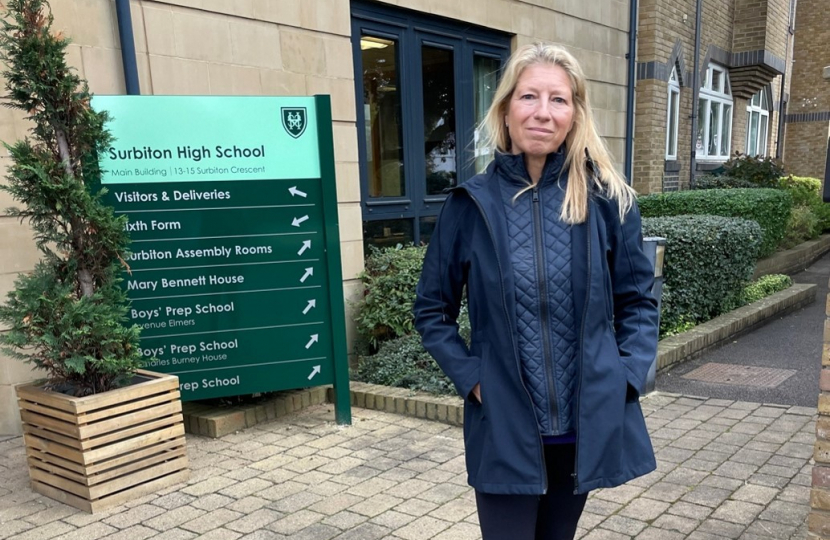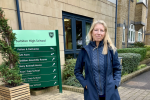
“I’m a tactical voter,” a mum in one of Surbiton’s pretty terraced river roads told me, “and we send our daughter to private school, and we make sacrifices to do that. We couldn’t afford to pay any increases in school fees. With the threat of a Labour government, it wouldn’t be safe to vote Lib Dem again so I will be voting Conservative to protect my daughter’s school place”.
The recent Labour conference-announced, red-meat, flagship policy to tax private schools, revived from their 2017 Corbyn manifesto pledge, assumes that independent schools are the home of a ‘privileged’ elite – an appalling socialist stereotype prejudice and tax against aspirational hard-working middle-class families. It shows how little Labour has changed under Sir Keir.
Kingston and Surbiton and SW London are one of the most educated parts of England and have one of the highest independent school attendances in the country with over 12% and 3000 students in Kingston borough alone. With well-known schools like Kingston Grammar, Surbiton High, Marymount, Rokeby, Shrewsbury House, Holy Cross, Canbury, Westbury and The Study, Kingston Borough is one of the most aspirational places to live linked with professional careers and parents with high expectations for their offspring.
Imposing VAT on school fees directly impacts the middle-class families who are already struggling to make ends meet. Private education is often the choice for parents who seek smaller class sizes, a safer environment, or a particular educational philosophy. By taxing these families, the Labour proposal would unfairly penalise them for making choices they believe are in the best interest of their children.
The Independent Schools Commission (ISC) represents 1,400 different types of school. Over half of schools are non-selective, three quarters are not for-profit and a fifth of pupils have special needs. In 2021, independent schools contributed £14.1bn to the UK economy and £4.3bn in tax. (https://www.isc.co.uk/media/5926/isc-vat-full-report-1018-for-circulation.pdf)
I grew up in a family where my parents believed in making every sacrifice for our education. My grandfather was a Derbyshire butcher and sacrificed everything to send my dad and his brother to a private school. My dad went on to win a place at Cambridge. I went to a small independent school in Leatherhead and then a state sixth form college. I have taught in independent schools and in state schools and I’ve been a school governor at a local state school – and I’m about to join the board of a local state secondary in Kingston Borough - where the parents and children have equally high expectations and seem very much as aspirational, ambitious, and sacrificing as parents in the independent sector.
Labour argues that by taxing parents through an introduction of VAT, and potentially business rates too, on school fees, they can generate more income to support disadvantaged pupils. But do those ideologically led sums add up? Some experts predict that many if not all independent schools would close within 5 years. The hypothetical percentage of the 500,000 children whose parents can no longer afford school fees will flip into the state sector, costing the government phenomenal costs they didn’t previously have. The impact of increasing number of children in state education would either decrease spending per pupil or increase the cost to the taxpayer.
Labour believes that the slack in budget will impact higher consumer spending and high street support, but it is more likely that these same parents will reinvest their savings in property, exacerbating the pressure on catchment area house prices and competition where an already short supply of places means that more parents miss their first choice. It is widely expected that it would require huge investment in building new classrooms and new schools. Labour has no contingency budget or plan.
The long-term impact on reducing choice and diversity, standards and competition in education is the economy, skills, and Britain’s future global competitive position.
Labour also overlooks the very significant £483m bursaries independent schools make in children from disadvantaged backgrounds. In addition, independent schools offer nearly 9000 local partnerships sharing resources and teachers. For instance, the day after the Grenfell fire, Latymer stepped in and took in the entire 6th form of their neighbouring fire-scorched state school partner ahead of exams, kept the children safe and learning and achieved incredible A level results against all the odds.
Is this Labour policy about tax revenue or just a good old fashioned socialist politics of envy class war? After four election defeats tribal Labour voters will put up with almost any compromise to get the Tories out - but they do need to keep one or two symbolic policies that they really believe in.
In Kingston and Surbiton and SW London it is likely that this policy will hurt Labour and with it, Lib Dem tactical voters. A vote for Lib Dem is now a vote for Labour. Sir Ed is in Sir Keir’s pocket.
Many Liberal supporters come from middle-class professional families responding to peer pressure virtue signalling and sense of guilt. A disproportionate 10-25% of students going on to university have been educated in independent schools. Is Labour prepared to jeopardise this Liberal elite support by asking them to choose between their political affiliation and their children’s future?
A Labour government has no place in using the tax system to penalise parental choice in education and middle-class aspiration. Or to level the education playing field. I pledge to use my Conservative voice for high expectations, aspiration and on behalf of parents in Kingston and Surbiton constituency to argue against this damaging tax on independent schools. I also add my support to Rishi’s reforms to A levels and to investing in more teachers.





